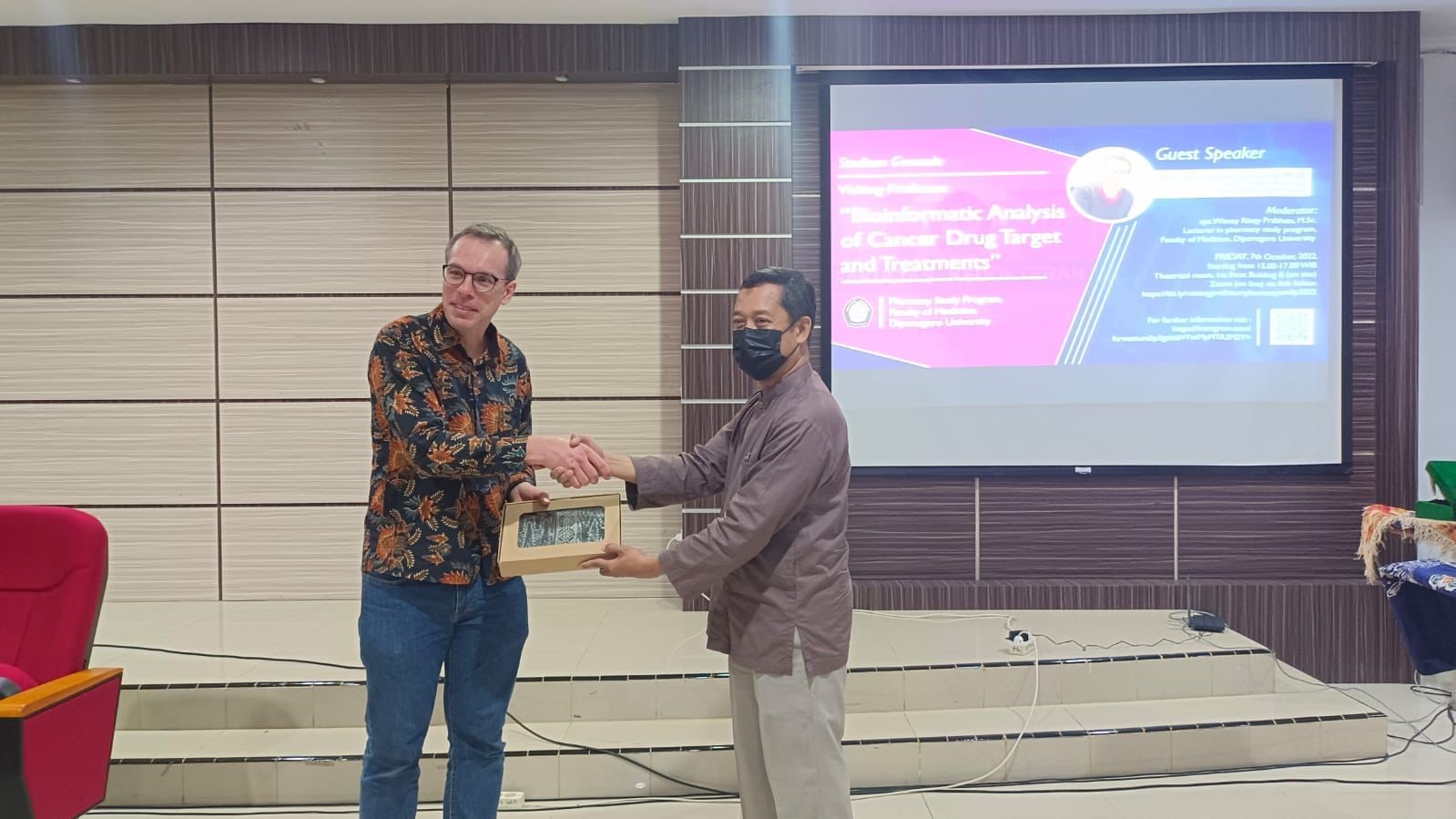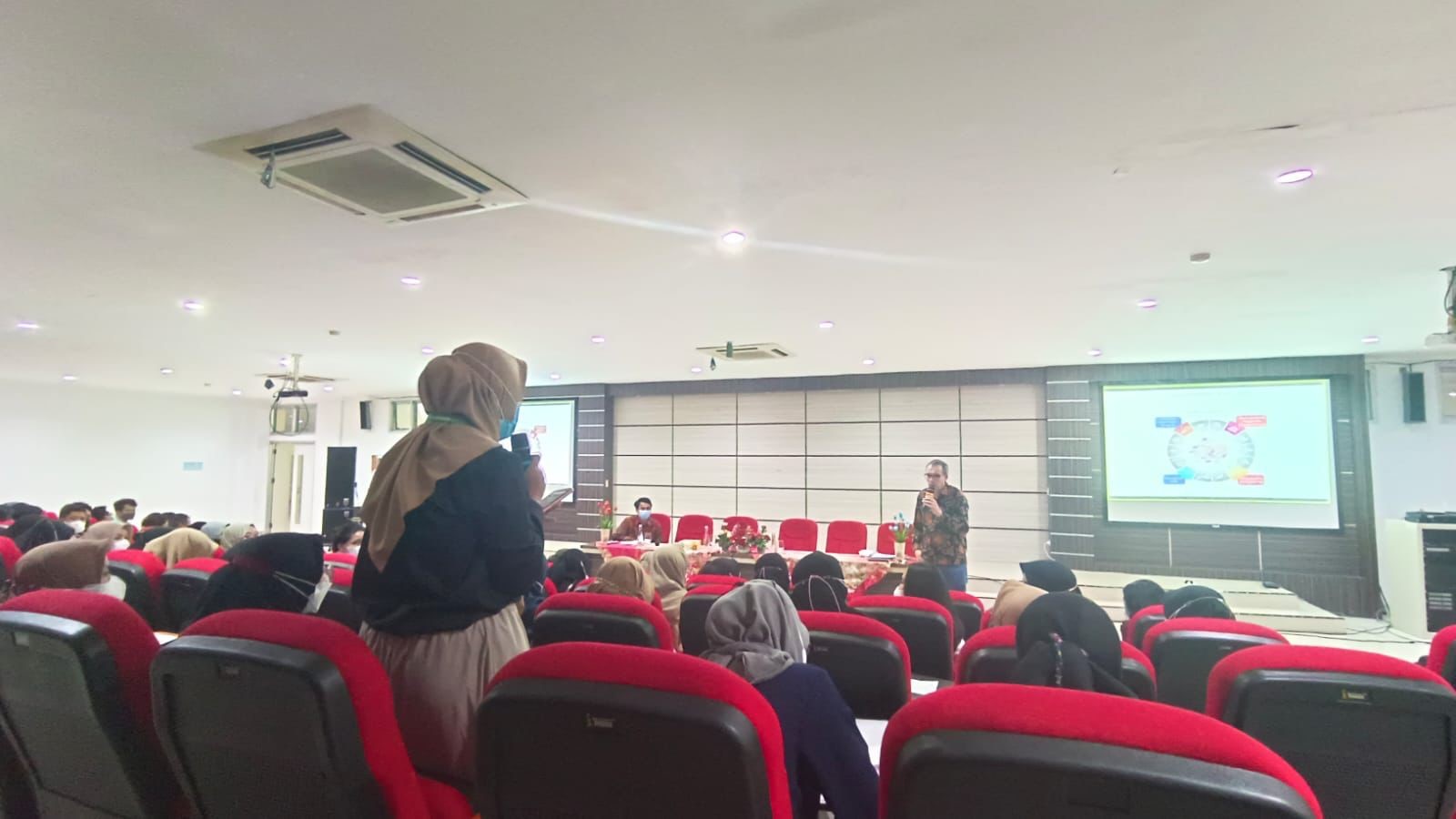Bioinformatics, as defined by National Human Genome Research Institute, is a scientific subdiscipline that involves using computer technology to collect, store, analyze and disseminate biological data and information, such as DNA and amino acid sequences or annotations about those sequences. Bioinformatics may serve to identify susceptibility determinants and illuminate the pathogenic pathways involved in illness and will provide an opportunity for the development of targeted therapy. Bioinformatics plays an important role in drug development and targeted therapy of cancer. Cancer therapy may benefit from the application of bioinformatics in the recognition and verification of biomarkers as well as disease progression measurement. Therefore, bioinformatics plays a major role in selecting drug targets.
To increase the knowledge regarding with bioinformatics in health & medical researches/practices, pharmacy study program conducted a stadium generale program inviting expertise in the field of bioinformatics. In this opportunity, Prof. Emmanuel Cornillot from facultie de pharmacie, Universite de Montpellier was invited to give a lecture and experience related with Bioinformatics approach in the development of cancer treatment. Entitled with “Bioinformatic Analysis of Cancer Drug Target and Treatments”, this event took place on October 7th, 15.00-17.00 at theatrical room, building B, Faculty of Medicine, Diponegoro University. The lecture ran smoothly and generated great enthusiasm from the participants. The participants who are students from the first to third year learn new knowledge and experience related to bioinformatics approach, where the approach is not widely known and applied in Indonesia.
Prof Emmanuel’s work is related in the use of bioinformatics approach for research in the field of Cancer drug target. His team has successfully developed algorithms to be used in finding the best target for cancer treatment. Bioinformatics in cancer drug target and treatment is very promising approach due to the fact that research on cancer has progressed exponentially and generate millions of information which need to be processed and harnessed to increase efficacy and safety of cancer therapy. Data-driven research and the clinical implementation of bioinformatics study may be the best option to ensure this “big data” can be analyzed properly.
Prof. Emmanuel shared his experience working in the field of bioinformatics in the discovery of cancer targets. These findings are very helpful in reducing cancer deaths. Research for the discovery of biomarkers is considered very important to reduce deaths that occur due to treatment delays. Various cancer targets have been described in lectures, and some of the targets studied are very promising to develop a target-based treatment for cancer.
We hope this event will be a good initial exposure in preparing students and faculty members to develop research in the field of bioinformatics.



